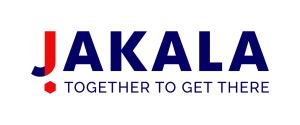By offering a locked-down CMS as a Service solution, the University of Colorado eliminated the need for traditional webmasters in every college. Instead, a small group of developers, designers and support staff in a centralized IT or university communications group provided access to use pre-configured Drupal instances on managed hosting. This allowed us to provide websites that met our branding, accessibility and security requirements.
It also resulted in cookie-cutter sites with limited integration to modern marketing solutions. It wasn't easy to allow innovation at the bazaar level (a single site) without potentially impacting the cathedral (infrastructure used by 1000+ sites).
The modern web and marketing require composable solutions that can be quickly customized... but are STILL on brand, usable by all types of devices and secure. Small teams can no longer handle all of the custom features and integration requests that come from marketing teams alone.
How do we do it all? With modern Drupal, Pantheon and GitLab.com.
We've bought and built the infrastructure to support a Drupal configuration that allows us to empower more of the talented people we work with across the University of Colorado. These people were previously locked out of collaborating with our Drupal development teams directly because they lacked Drupal-specific knowledge. By combining modules like Config Patch and Pantheon Autopilot Toolbar in our Install Profile/Upstream with a well-designed infrastructure, we provide a non-CLI option for Site Builders who are capable of defining content types and creating Views. Some of the more advanced collaborators even edit Twig and CSS directly in GitLab using the web-based VS Code editor and CI that deploys to a Multidev instance on Pantheon. Push rules and Merge Request approval policies in GitLab limit the file types they can modify. Automated Pull Mirroring keeps everything in sync for Drupal developers working locally in DDEV. Integrating new accessibility and performance testing services with behavioral testing of critical features as part of the Merge Requestion approval saves developers from having to manually review most changes.















